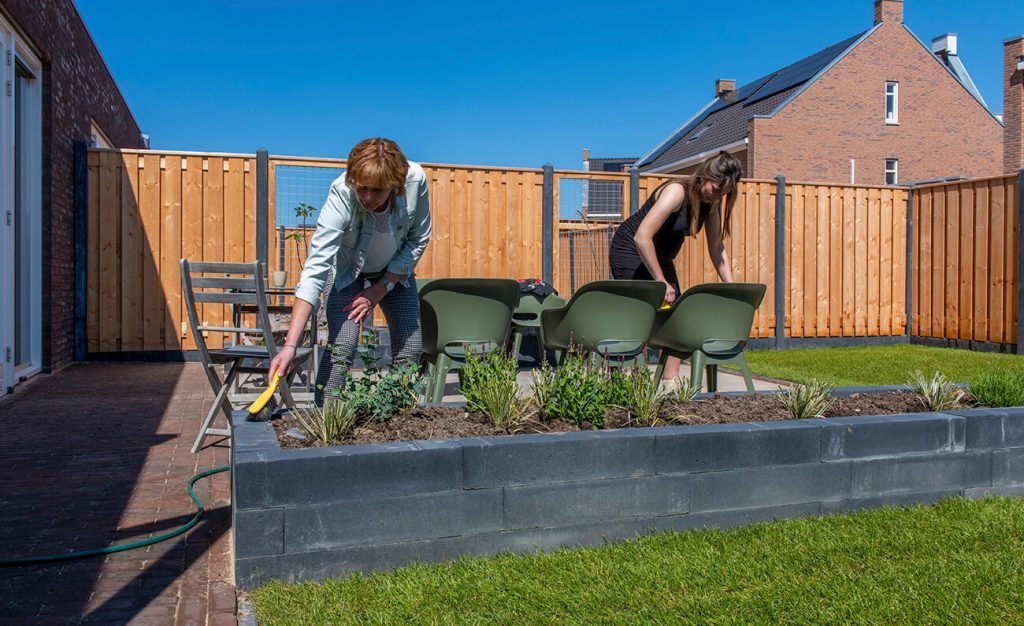Top Tips to Keep Your Garden Tidy
Maintaining a tidy garden during the summer months not only enhances your outdoor space’s beauty but also promotes plant health and personal well-being. With 87% of UK households having a garden, it’s clear that many homeowners value their green spaces. However, keeping these areas pristine requires consistent effort and informed strategies. Below are essential tips to help you keep your garden in top shape this summer.
1. Regular Lawn Maintenance
A well-kept lawn serves as the foundation of a tidy garden.
Mowing
Regular lawn mowing encourages healthy grass growth. Aim to mow once a week, adjusting the frequency based on rainfall and growth rates.
Edging
Neat edges create a polished look. Use edging shears to define boundaries between the lawn, flower beds, and pathways.
Watering
Early morning watering reduces evaporation and ensures grass roots receive adequate moisture.
2. Prune and Deadhead Plants
Pruning not only maintains plant appearance but also promotes vigorous growth.
Shrubs and Trees
Trim overgrown branches to improve air circulation and light penetration, reducing disease risk.
Flowers
Regularly deadhead spent blooms to encourage continuous flowering throughout the season.
3. Weed Control
Weeds compete with your plants for nutrients and space.
Regular Weeding
Hand-pull weeds weekly to prevent them from establishing. Focus on removing the entire root to avoid regrowth.
Mulching
Apply a layer of organic mulch to suppress weed growth and retain soil moisture.
4. Tidy Borders and Pathways
Clean lines and clear paths enhance the garden’s aesthetic appeal.
Defining Edges
Use a spade or edging tool to create crisp lines between lawns and flower beds.
Clearing Debris
Regularly sweep pathways and remove fallen leaves or petals to prevent slippery surfaces.
5. Efficient Watering Practices
Water conservation is crucial, especially during dry spells.
Early Morning Watering
Watering in the early morning reduces evaporation and allows plants to absorb moisture before the day’s heat.
Drip Irrigation Systems
These systems deliver water directly to the plant roots, minimizing waste.
6. Composting Garden Waste
Recycling organic waste benefits your garden and the environment.
Compost Heap
Collect grass clippings, pruned branches, and dead leaves to create nutrient-rich compost for your plants.
Avoiding Pests
Turn the compost regularly to aerate it and deter unwanted pests.
7. Organize Garden Tools
Keeping tools in order makes maintenance tasks more efficient.
Storage Solutions
Use hooks, shelves, or a dedicated shed to store tools neatly.
Regular Cleaning
Clean and oil tools after use to prolong their lifespan and ensure they function effectively.
8. Encourage Beneficial Wildlife
Attracting helpful creatures can naturally maintain garden health.
Bird Feeders
Birds help control pests. Providing feeders encourages them to visit your garden.
Insect Hotels
These structures offer shelter to beneficial insects like bees and ladybirds, which aid in pollination and pest control.
9. Plan for Waste Disposal
Efficient waste management keeps your garden clutter-free.
Green Bins
Utilize local council services for garden waste collection.
Burning Restrictions
Be aware of local regulations regarding burning garden waste to avoid fines.
Expert Advice from Our Team
Our gardening experts emphasize the importance of consistency. Regular, small efforts prevent tasks from becoming overwhelming. For instance, dedicating 15 minutes daily to weeding or pruning can maintain your garden’s tidiness without consuming your weekend. Additionally, investing in quality tools can make maintenance tasks more manageable and efficient.

